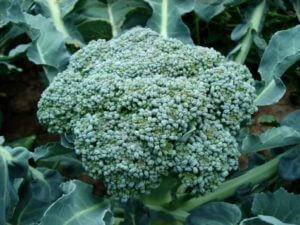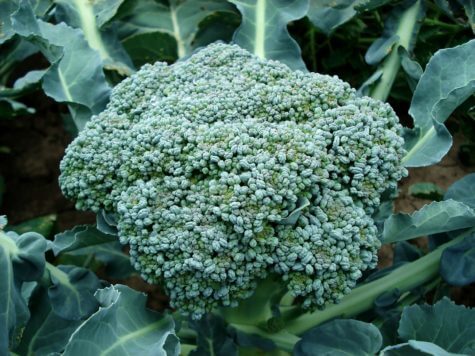STATE COLLEGE, Pa. — Broccoli just might be the cure for digestive issues stemming from a problematic gut, a new study finds.
Researchers at Penn State University conducted an experiment involving mice, finding that rodents whose diets were supplemented with broccoli coped better with their digestive symptoms, such as leaky gut and colitis.

These findings could hint at the potential for other cruciferous vegetables, such as cauliflower and Brussels sprouts, to also ameliorate problems in the digestive tract.
“There are a lot of reasons we want to explore helping with gastrointestinal health, and one reason is if you have problems, like a leaky gut, and start to suffer inflammation, that may then lead to other conditions, like arthritis and heart disease,” says researcher Gary Perdew, a professor of agricultural sciences, of his team’s research in a press release. “Keeping your gut healthy and making sure you have good barrier function so you’re not getting this leaky effect would be really big.”
One chemical compound produced through broccoli consumption, referred to as indolocarbazole, or ICZ, is a catalyst for a healthy equilibrium in the gut and immune system, Perdew and his team explain. That’s because ICZ activates the Aryl hydrocarbon receptor (AHR) in the intestinal lining, which helps regulate the gut. This stabilizing effect could help prevent the development of many gut-related conditions, including Crohn’s Disease and some forms of cancer, they argue.
Some individuals could suffer adverse consequences from the same protocol used on the mice in the experiment, but the researchers affirm that targeted treatment on the right population set shows promise.
To receive the benefits found among the mice studied, an average person would have to consume about three-and-a-half cups of broccoli a day.
If that sounds excessive for your tastes, you could turn to a smaller serving of Brussels sprouts, says Perdew.
“Brussels sprouts have three times as much, which would mean a cup of brussels sprouts could get us to the same level,” he adds.
Of course, before you go on any diet, consult with a physician.
The full study was published this month in the Journal of Functional Foods.

Comments
Comments are closed.